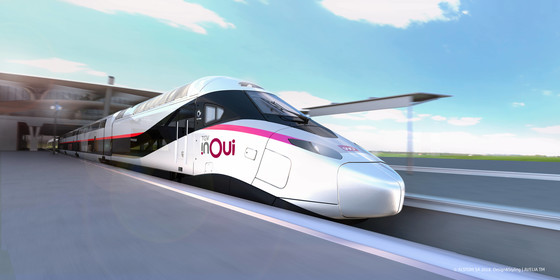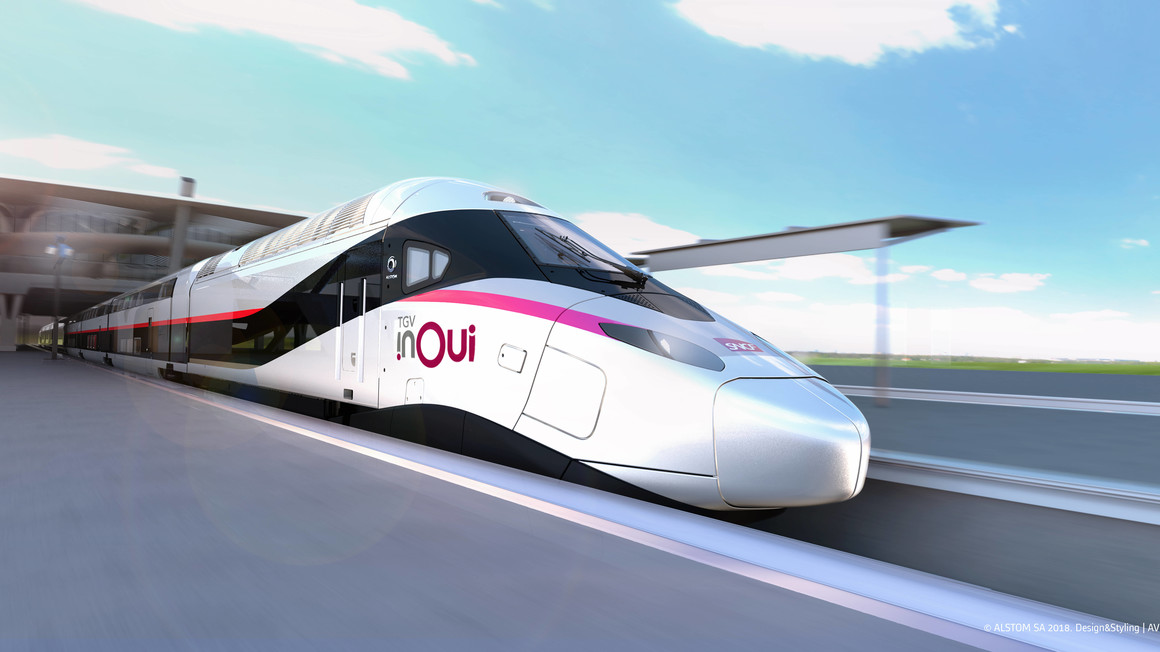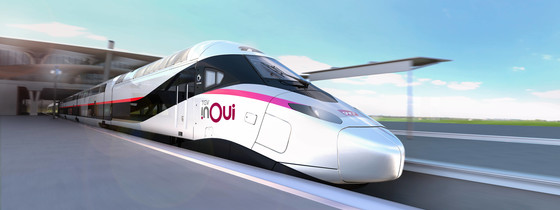
Alstom receives an SNCF order for 100 next-generation very high speed trains
Alstom receives an SNCF order for 100 next-generation very high speed trains

Investor relations
Cyril Guerin
Send an emailGuillaume Gauville
Send an emailEstelle Maturell Andino
Send an emailJalal Dahmane
Send an email26 July 2018 – The Board of Directors of SNCF Mobilités has approved a firm order for 100 next-generation Avelia Horizon very high speed trains (TGV[1]) at its meeting on 26 July 2018.
This new generation of very high speed trains addresses to ambitious goals in terms of competitiveness of the rail sector and profitability for SNCF, with a total acquisition cost 20% lower than that of the previous generation. The teams of experts working on this project for two years have risen to the challenge of specifying a new train at a reduced cost of €25 million per trainset, with an additional budget of €190 million for options and services[2].
Avelia Horizon will consist of two innovative power cars of reduced length, combining high performance and compactness, and articulated double-deck passenger cars. Their design allows for a 20% increase in passenger-dedicated areas, allowing the train to accommodate up to 740 passengers in the highest-capacity configuration chosen by SNCF.
Maintenance costs will be more than 30% lower than those currently recorded by SNCF. The train’s maintainability is taken into account from the design stage, with a remote diagnostic system for predictive maintenance, which improves the trains’ reliability and availability. Many of the components have an optimised design to simplify, reduce, and allow longer intervals between maintenance interventions. Thanks to its aerodynamic design and a more efficient traction drive, the next-generation TGV will consume 20% less energy than existing TGVs.
“This order is the successful fruit of the collaborative work of SNCF and Alstom. Alstom's Avelia Horizon solution meets the technological, economic and competitiveness challenges of SNCF,” said Henri Poupart-Lafarge, Chief Executive Officer of Alstom.
[1] TGV is a trademark of SNCF
[2] The contract amount is €2.7 billion (before firming) and will be booked in Q2 of the current fiscal year
